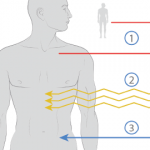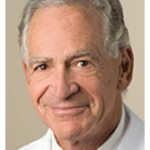Our second case received multiple therapies including corticosteroids, intravenous immunoglobulin, cyclophosphamide, rituximab, azathioprine, hydroxychloroquine, and plasma exchange; however, she was unable to come off of ECMO. She was evaluated by the lung transplant team, but was not felt to be an appropriate lung transplant candidate due to prolonged ECMO course (39 days), deconditioned state and concern for persistent active disease. The care team and the family made the decision to discontinue ECMO contingent upon the arrival of distant family members, but prior to this, she died suddenly of cardiac arrest after 71 days on ECMO.
Lessons Learned
These experiences highlight a critical need for further development of guidelines and research in this area, particularly because the prevalence of autoimmune disease continues to rise. There is a need for transparent discussion among transplant teams, physicians and families regarding whether a patient is an organ transplant candidate as early in the course as possible.
We learned from these two cases; however, more uncertainties than answers remain when rheumatology patients with active disease are in need of organ transplant.
W. Blaine Lapin, MD, and Jennifer L. Rammel, MD, MPH, are second-year pediatric rheumatology fellows at Baylor College of Medicine, Texas Children’s Hospital, Houston.
Andrea A. Ramirez, MD, MEd, is an assistant professor of pediatrics and associate program director of the pediatric rheumatology fellowship at Baylor College of Medicine, Texas Children’s Hospital, Houston.
References
- MacLaren G, Conrad S, Peek G. Extracorporeal life support organization (ELSO): Indications for pediatric respiratory extracorporeal life support [expires March 2018]. 2015 Mar.
- Committee on Hospital Care, Section on Surgery, and Section on Critical Care. Policy statement—pediatric organ donation and transplantation. Pediatrics. 2010 Apr;125(4):822–828.
- Organ Procurement and Transplantation Network (OPTN) Policies Manual.
- Lionaki S, Skalioti C, Boletis JN. Kidney transplantation in patients with systemic lupus erythematosus. World J Transplant. 2014 Sep 24;4(3):176–182.
- Yusen RD, Edwards LB, Dipchand AI, et al. The registry of the International Society for Heart and Lung Transplantation: Thirty-third adult lung and heart–lung transplant report—2016; Focus theme: Primary diagnostic indications for transplant. J Heart Lung Transplant. 2016 Oct;35(10):1170–1184.
- Verleden GM, Dupont L, Yserbyt J, et al. Recipient selection process and listing for lung transplantation. J Thorac Dis. 2017 Sep;9(9):3372–3384.
- Weill D, Benden C, Corris PA, et al. A consensus document for the selection of lung transplant candidates: 2014—an update from the Pulmonary Transplantation Council of the International Society for Heart and Lung Transplantation. J Heart Lung Transplant. 2015 Jan;34(1):1–15.
- Orens JB, Estenne M, Arcasoy S, et al. International guidelines for the selection of lung transplant candidates: 2006 Update—A consensus report from the Pulmonary Scientific Council of the International Society for Heart and Lung Transplantation. J Heart Lung Transplant. 2006 Jul;25(7):745–755.
- VanderPluym CJ, Rebeyka I, Buchholz H. Successful bridge to transplantation for pediatric lupus cardiomyopathy. J Heart Lung Transplant. 2012 Jan;31(1):110–111.
- Hsu RB, Tsai MK, Lee PH, et al. Simultaneous heart and kidney transplantation from a single donor. Eur J Cardiothorac Surg. 2008 Dec 1;34(6):1179–1184.
- Tweezer-Zaks N, Zandman-Goddard G, Lidar M, et al. A long-term follow-up after cardiac transplantation in a lupus patient: Case report and review of the literature. Ann N Y Acad Sci. 2007 Sep;1110:539–543.
- Wang SS, Chou NK, Chi NH, et al. Simultaneous heart and kidney transplantation for combined cardiac and renal failure. Transplant Proc. 2006 Sep;38(7):2135–2137.
- Levy RD, Guerraty AJ, Yacoub MH, Loertscher R. Prolonged survival after heart-lung transplantation in systemic lupus erythematosus. Chest. 1993 Dec;104(6):1903–1905.
- DiSesa VJ, Sloss LJ, Cohn LH. Heart transplantation for intractable prosthetic valve endocarditis. J Heart Transplant. 1990 Mar–Apr;9(2):142–143.


